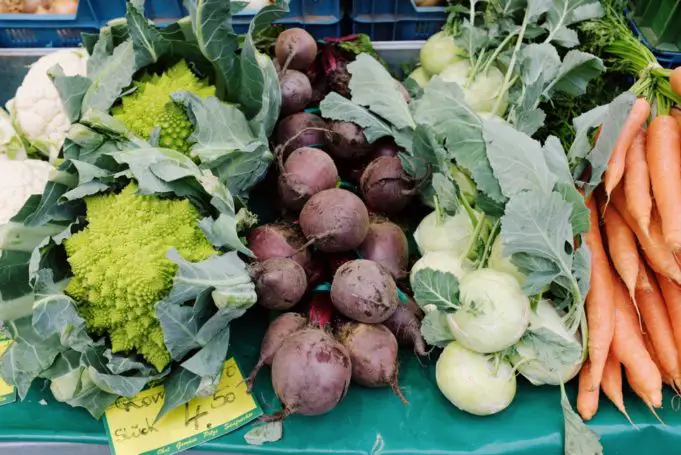You’ve likely heard the saying, “health begins in the gut.” And it’s true. Often the way you feel and your quality of life can be linked back to your gut health, and the organisms that thrive there. Treat your gut the way it deserves—and relieve occasional gas, constipation, and bloating—by taking a look at your food.
Let’s Get Personal
Your gut microbiome—the microorganisms living in your intestines—make up the health of your gut. And your digestive tract is home to 300–500 different species of bacteria. Many are incredibly beneficial and necessary.
With so much talk about prebiotics and probiotics, it’s important to know how they support your microbiome. Prebiotics promote the growth of healthy bacteria, while probiotics are live, good bacteria you add to your gut (learn more on Ask the Scientists).*
The list of needs for a happy gut microbiome is fairly short. When each is in place, everything flows:
- Restful sleep
- Regular exercise
- Reasonable stress levels
- Plenty of water
- Whole foods
Find them out of balance and your gut can pay the price. Digestive health issues affect about 15 percent of people in Western countries. Your choices of what you eat and drink can make a world of difference.
Although processed, high-sugar, and high-fat foods may sometimes be more convenient in a pinch, your health is worth some extra effort. And when it comes to tummy troubles, relief may be as simple as picking out higher-quality foods at the market.
The Fab Four
A good diet and a healthy gut are best friends. Eating plenty of plant-based foods, lean protein, and fiber only makes this relationship stronger.
Here are four fabulous food suggestions for healthy digestion:
- High-fiber foods can act as a “gut toothbrush,” helping your digestive tract move everything along. Fill your cart with beans and legumes (lima, kidney, black, green, chickpeas), peas, oats, bananas, berries, asparagus, and leeks.
- Leafy greens are high in fiber and contain a specific type of sugar that feeds your healthy gut bacteria. Hit your produce aisle for spinach, romaine lettuce, cabbage, collard greens, beet greens, and kale.
- Fermented foods increase probiotics in your gut to help break down food. Look for yogurt, miso, sauerkraut, kombucha, tempeh, and kimchi.
- Collagen-rich foods contain amino acids glycine, glutamine, and proline, which can be beneficial to the intestinal tract. Find these in foods like salmon (fish and shellfish), chicken, bone broth, eggs, citrus fruits, gelatin, and mushrooms.
If you’re like most, a quick list of good foods comes in handy for your trip to the market. Here are some quick and healthy go-to options:
| Fruits and Veggies | Grains and Fiber | Fermented Foods |
| Apples | Barley | Kimchi |
| Asparagus | Brown rice | Kombucha |
| Avocado | Oat bran | Miso |
| Bananas | Oatmeal | Sauerkraut |
| Beans and legumes | Whole grains | Yogurt |
| Beets | Whole wheat pasta | |
| Berries | Herbs and Seeds | |
| Broccoli | Chia seeds | |
| Brussels sprouts | Fennel | |
| Cabbage | Lemongrass | |
| Collard greens | Mint | |
| Garlic and onion | Mushrooms | |
| Kale | Peppermint | |
| Kiwi | Turmeric | |
| Leeks | ||
| Lentils | ||
| Oranges | Protein and Collagen | |
| Papaya | Salmon | |
| Pears | Bone broth | |
| Peas | Vegetable broth | |
| Pineapple | Chicken | |
| Romaine lettuce | Shellfish | |
| Spinach | ||
| Squash | ||
| Tomatoes | ||
In addition to smart food choices, fiber-packed products can offer continued support for healthy digestion. Use them to fill gaps and leverage key natural ingredients to give your body all the gut-friendly nutrients it needs.
Foods to Avoid
The digestibility of certain foods vary from person to person. But a few foodie facts stand firm.
Fried foods can ruin your day. The added fat can throw off your gut microbiome, impacting your waistline and your digestion. Try baking or roasting foods instead to deliver that delicious, crispy crunch you’re craving.
Sugar substitutes aren’t sweet. Alternative sweeteners (like those found in chewing gum or sugar-free foods) are tied to gastrointestinal discomfort. That’s because they aren’t fully digestible. Find plant-based substitutes like monk fruit, stevia, and agave to feel good while satisfying your sweet tooth.
Fatty meats bring the same concerns as fried food—fat. Fat impacts the speed your stomach empties, so whether it slows down or hurries the process, you’ll feel it. Protein is a necessity in your diet, so try replacing fatty meats with leaner (or plant-based) protein sources.
Processed foods are made by taking parts and pieces from other foods to create something new. Processing often strips a food of its fiber and increases the amount of fat, sugar, and salt—all hard for your body to handle in excess. Reach for fruits, veggies, nuts, whole grains, and lean proteins. They’re a tasty way to love your body.
Looking for more swaps? Check out this article Easy Swaps for 6 Hard to Digest Foods for inspiration.
Don’t Forget to Chew
Enjoy It. A healthy diet is made one nutritional spoonful after another until habits form. As you make good food choices, you’ll start to feel the change. Eating a probiotic-friendly diet high in fiber, healthy fats, and lean protein is a giant step to gut health. Enjoy the right foods in the right amounts—and in our fast-food world, don’t forget to slow down. Take time to shop for gut-loving foods and enjoy every tasty bite—your microbiome will thank you.
REFERENCES
https://www.hopkinsmedicine.org/health/wellness-and-prevention/5-foods-to-improve-your-digestion
https://www.healthline.com/health/gut-health#foods
*These statements have not been evaluated by the Food and Drug Administration. This product is not intended to diagnose, treat, cure, or prevent any disease.












